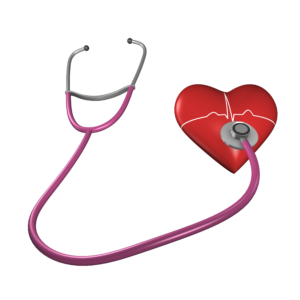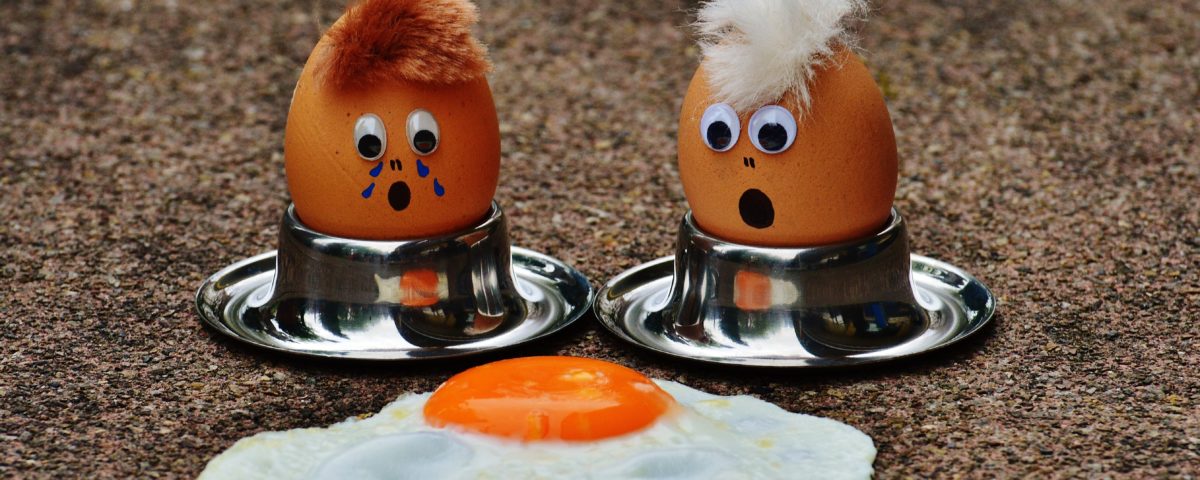Eggs-Don’t get the message scrambled
Summary
- Eggs are one of the most commonly debated foods in nutrition science
- Dietary cholesterol (the cholesterol in the food we eat) is not a good predictor of the levels of cholesterol in the blood
- Eggs are a good source of energy, protein, healthy fats and essential nutrients

Introduction
Eggs are a food that often raises debate among health professionals and the general public. Updates on the position of eggs in the diet is rarely out of the nutrition headlines. Despite substantial research on the topic, confusion still remains about the value of including eggs in the diet, if at all, or whether they might actually cause more harm than good. Are eggs a healthy whole-food provided by nature or something that should be avoided at all costs?

Why are eggs considered the bad guy?
Like many foods, only recently has it become clear the extent to which eggs contribute valuably to our diet. For many years, eggs have been incorrectly associated with being deleterious to our health. The logic goes as follows. According to the “lipid hypothesis” put forward in the late 1970s, increased levels of cholesterol in the blood result in increased risk of heart disease. Egg yolks contain cholesterol. Therefore, eating eggs must contribute to heart disease. Simple, isn’t it? What is now known is that cholesterol, in total terms, may not be a risk factor for heart disease, but rather the relative amounts of good and bad cholesterol (discussed below) are the important markers and determine the risk of disease. However, we now also know that dietary cholesterol (the cholesterol in the food we eat) is not a good predictor of the levels of cholesterol in the blood. In fact, as you might expect, the body is a lot more complicated than that, and a multitude of dietary factors and lifestyle habits are a stronger influence on cholesterol in blood than simply the cholesterol that we eat.

What is cholesterol?
Cholesterol is a tiny molecule present in the body and in certain foods that we eat. In general, cholesterol plays a vital role in many biological processes in the body. These include building and maintaining cell membranes, and the synthesis of steroid hormones and vitamin D. Cholesterol is transported in the blood primarily by two main proteins called high-density lipoproteins (HDL) and low-density lipoproteins (LDL). When cholesterol is measured in the blood, a measurement is made to see how much of the total cholesterol is being transported by HDL or LDL. HDL cholesterol is often referred to as “good cholesterol” and so having higher amounts is suggested to help protect the cardiovascular system, whereas having higher LDL cholesterol [bad cholesterol”, and in particular, very-low density lipoproteins (VLDL)] is linked with a greater risk of heart disease.

As mentioned earlier, the degree to which the blood cholesterol levels are affected by cholesterol in the food we eat depends on a multitude of factors including genetics, other dietary components such as the presence of refined carbohydrates or a lack of fibre, and a lack of physical activity. That dietary cholesterol from foods such as eggs contributes very little to total cholesterol levels in the blood provides just another example of how genuinely healthy foods can mistakenly get a bad name. Recent well-designed studies have shown that cholesterol intake from eggs does not increase LDL cholesterol or the risk for heart disease. In fact, combined with a nutrient-rich, balanced diet, eggs can actually promote favorable shifts in HDL, which may actually reduce the risk of heart disease in the long run. In fact, eating eggs at breakfast can assist with fat loss, as being a rich source of protein, they provide sustained supply of energy and satisfy appetite, which in turn helps to control snacking in the lead-up to lunch.
“1 a day” I hear you say?

The average-sized egg provides an attractive blend of highly bio-available protein, essential fats, vitamins and minerals. According to the World Health Orgainsation (WHO) eggs are a “very good source of selenium, iodine, and vitamin B, protein, molybdenum, phosphorus, vitamin B5, vitamin B12 and vitamin D”. This illustrates just how nutritious eggs are and how much they can contribute to a varied and balanced diet.
Although there is no clear consensus on how many eggs you can or should consume daily, I would suggest that up to two eggs daily is a safe guideline. Several years ago, a case published in the prestigious New England Journal of Medicine described an apparently healthy 90 year old man who reported consuming about 25 eggs per day for the previous 15 years – but no one is suggesting that this is normal practice! Assuming that the eggs are coming from the right sources and the person is in no way intolerant of egg proteins, a couple of eggs daily can be eaten as part of a nutrient-rich, balanced diet.

A recurring theme for me is knowing where your food comes from, and in the case of animal products, what the animal has been fed. If you are eating animal products, then you are what you eat eats! In the case of eggs, how the hens, ducks or other fowl have been farmed and fed impacts the nutrition profile of the egg. For instance, free-range eggs from a hen that picks grass and eats house scraps are considerably more nutritious compared to eggs from a caged hen fed a grain-based diet. Eggs laid by free-roaming, pasture-fed hens have a greater proportion of nutrients and the health-promoting essential omega-3 fats compared to grain-fed caged hens. Don’t believe me? Next time that you can get your hands on free-range, pasture-fed eggs (from a farmer you trust!), check out the difference by comparing the yolks side-by-side with a non-free range egg. The darker yellow-orange of the free-range, pasture-fed egg is a result of a greater level of the anti-oxidant beta-carotene that is present because the hen has been eating a diet higher in natural plant sources.
This does pose a challenge when trying to choose the best eggs as not everyone has access to free-range or pasture-fed eggs. At the very least, when buying your eggs choose free-range eggs (and beware that organic does not mean free-range or pasture-fed), or keep an eye out for fresh farm eggs in local shops and butchers.

In short, eggs are one of nature’s best foods. They are a good source of energy, protein, healthy fats and essential nutrients. They are extremely versatile and can be used as snacks, main meals and even desserts. For too long, eggs were labelled as a health hazard, but now you can be rest assured that you can enjoy your eggs guilt-free! 25 per day? Maybe not, but natural, unprocessed foods like eggs should certainly not be labelled as foods to avoid.
References
Drouin-Chartier, J.P., Chen, S., Li, Y., Schwab, A.L., Stampfer, M.J., Sacks, F.M., Rosner, B., Willett, W.C., Hu, F.B. and Bhupathiraju, S.N., 2020. Egg consumption and risk of cardiovascular disease: three large prospective US cohort studies, systematic review, and updated meta-analysis. bmj, 36
Pearce, K.L., Clifton, P.M. and Noakes, M., 2011. Egg consumption as part of an energy-restricted high-protein diet improves blood lipid and blood glucose profiles in individuals with type 2 diabetes. British journal of nutrition, 105(4), pp.584-592.
Qureshi, A.I., Suri, M.F.K., Ahmed, S., Nasar, A., Divani, A.A. and Kirmani, J.F., 2006. Regular egg consumption does not increase the risk of stroke and cardiovascular diseases. Medical Science Monitor, 13(1), pp.CR1-CR8.
Zazpe, I., Beunza, J.J., Bes-Rastrollo, M., Warnberg, J., De La Fuente-Arrillaga, C., Benito, S., Vázquez, Z. and Martinez-Gonzalez, M.A., 2011. Egg consumption and risk of cardiovascular disease in the SUN Project. European journal of clinical nutrition, 65(6), pp.676-682.









